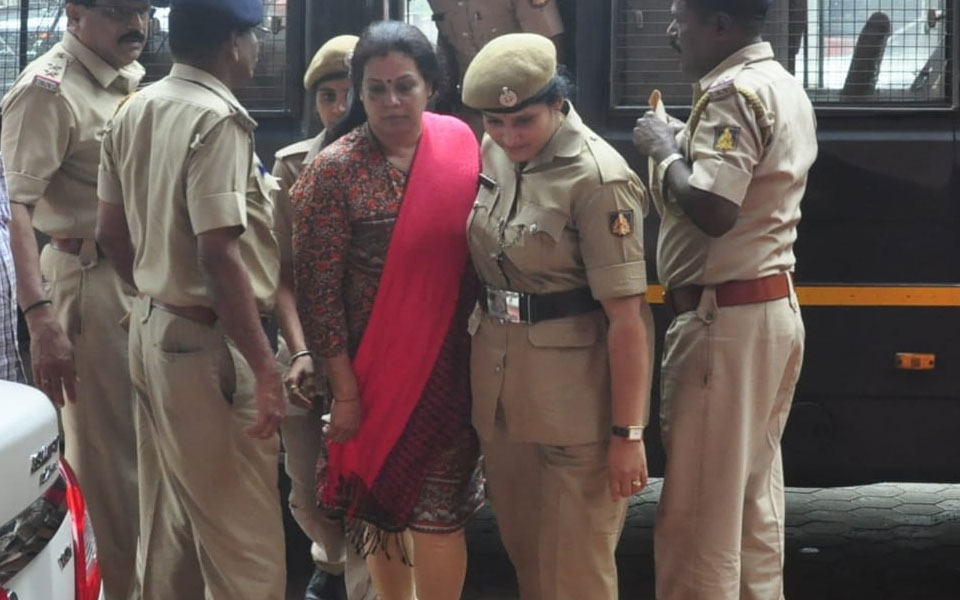Udupi: The hearing of the witnesses in the murder of businessman Bhaskar Shetty was began at the principal district and sessions court here on Monday with tight police security. All the three accused including Rajeshwari Shetty who were in Parappana Agrahara Jail in Bengaluru, were produced before the court during the hearing.
After day-long interrogation on July 6, the hearing was postponed to Monday. The hearing of then investigating officer and present Karwar ACB DySP SV Girish continued even today. Special public prosecutor Shantaram Shetty got the statements from Girish.
As the major hearing of Girish was completed monday, judge Venkatesh T Nayak allowed the cross examination of Girish on July 17. Advocates of the accused, Narayana Poojary, Arun Bangera and Vikram Hegde would continue their cross examination tomorrow. Sources said that in the beginning, Girish would be cross examined and if time permits, Bhaskar Shetty’s mother Gulabi Shedti would also be cross examined.
Accused produced before court
In the previous hearing the Judge ordered the police to produce the accused from the Parappana Agrahara jail before the court in the next hearing following a request from the advocates of the accused, all the three accused- Rajeshwari Shetty, Navaneeth Shetty and Niranjan Bhat were brought from Bengaluru Parappahana Agrahara jail on July 15 with tight police security and kept them at the Mangaluru jail. On Monday, they were brought to Udupi from Mangaluru jail and produced them before the court during hearing. At this time, accused in destroying witnesses Srinivas Bhat and Raghavendra were also present.
After the hearing, the accused were taken to the Mangalur jail. Till July 19, the accused would be taken from Mangaluru jail to Udupi court.
Journalists restricted
As the accused were producing before the court, the court complex was give police security and police restricted the journalists from entering the court hall. Metal detector was installed in the main entrance of the office of the principal district and sessions court judge in the first floor of the complex. Except the advocates, no others were allowed inside the court hall. Armed police were deputed outside and inside the court hall. Udupi ASP Kumarachandra, DySP Kumaraswamy and other police officers were present.
Let the Truth be known. If you read VB and like VB, please be a VB Supporter and Help us deliver the Truth to one and all.
Udupi: Manju Kola, husband of former Udupi City Municipal Council Vice-President Lakshmi Manjunath and a Hindutva organisation leader, was stabbed during a meeting held to settle a dispute related to a love affair at Malpe on Tuesday night.
Police have arrested five accused in connection with the case.
According to information available, Manju Kola had reportedly called for a compromise meeting near Malpe beach in the Palimaru area on Tuesday evening to resolve an issue involving a couple. During the discussion, a heated argument broke out and a youth allegedly stabbed Manju Kola.
He sustained injuries to his abdomen and collapsed. He was immediately shifted to a private hospital in Udupi for treatment.
Udupi Superintendent of Police Hariram Shankar said that five accused have been arrested in the case. As per preliminary investigation, the incident appears to have occurred due to personal reasons. He clarified that there is no communal angle to the incident and urged the public not to spread rumours.
The injured Manju Kola is out of danger and his condition is stable, the SP said.





